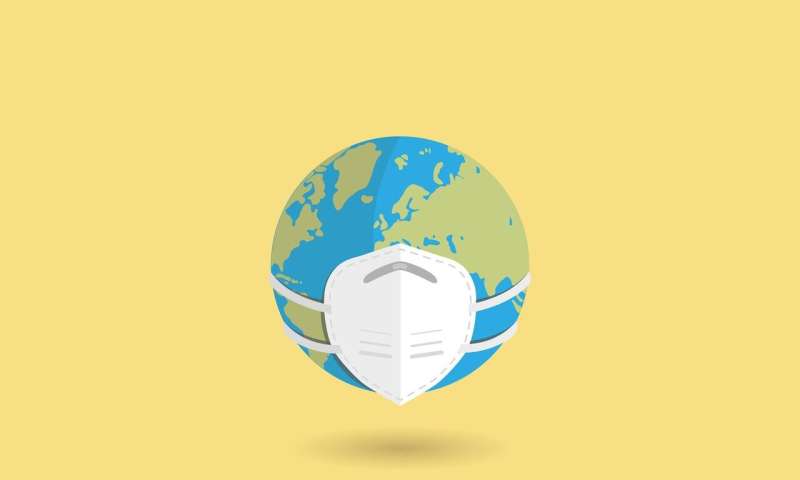Global virus deaths hit record high as EU approves second vaccine


The EU cleared a second coronavirus vaccine for use on Wednesday bringing relief to European countries struggling with spiralling infections, as the world clocked up a record number of deaths in a single day.
The Moderna vaccine is now set to join Pfizer-BioNTech’s jab for use in the 27-nation European Union, where governments have been criticised for slow rollouts of the doses already available.
“We’ll have more than enough safe and effective vaccines for protecting all Europeans,” promised European Commission chief Ursula von der Leyen.
The breakthrough came as a record 15,769 COVID-19 deaths around the world were registered in 24 hours.
The United States, the world’s worst-hit country, logged a record 3,936 deaths and Britain recorded its own record of more than 1,000 new deaths, leapfrogging Italy to become the fifth worst affected nation in the world.
‘Not just a visa issue’
Meanwhile, a high-profile mission to probe the origins of the pandemic was in disarray after Beijing denied entry to a World Health Organization (WHO) team at the last minute.
The 10-strong team had been due to arrive this week on a hugely sensitive mission to seek answers on how the virus first emerged in the central city of Wuhan in late 2019, after jumping from animals to humans.
WHO officials suggested there were problems with the visas but Foreign Ministry spokeswoman Hua Chunying admitted it was “not just a visa issue”.
“The issue of origin-tracing is incredibly complicated,” she told reporters, adding that talks were continuing over “the specific date and specific arrangement” of the visit.
The global crisis shows no signs of slowing, with more than 1.8 million people known to have died worldwide from 86 million confirmed cases.
China and other countries in east and southeast Asia managed to deal with outbreaks relatively quickly, countries in Europe and the Americas suffering the most severe epidemics.
‘Dark January’
While experts see mass vaccinations as the best route back to normality, the first rollouts have coincided with alarming spikes in deaths and caseloads.
Lebanon broke its daily high with more than 4,000 cases and Portugal reporting a record 10,000 new infections.
And policymakers have not been able to capitalise on the good news from vaccines as quickly as they may have liked.
Several European governments have been harshly criticised for slow rollouts—the Netherlands delivered its first jab on Wednesday, 10 days after the EU first approved the drug.
The EU as a whole has shifted more than one million doses, but this is fewer than Britain has managed.
And the vaccines have not yet relieved weary populations from the burden of stay-at-home orders, curfews, closed shops and shuttered schools.
A new lockdown came into force in the UK on Wednesday and Ireland followed suit shortly after.
“We simply have to suppress this surge,” prime minister Micheal Martin told reporters in Dublin, announcing a host of new restrictions as Irish officials warned of a “really dark January”.
‘Defiant’ Bulgarians
There is scant relief on offer from the arts or sport, with large-scale events spluttering back to life after being largely closed down earlier in the pandemic.
Thousands of cricket fans who attended Australia’s Boxing Day Test match against India have been told to get tested and isolate after a spectator tested positive.
The Grammy music awards have been postponed from January to March and the world’s biggest film festival in Cannes said it may be pushed back from May to later in the summer.
And hundreds who took part in an illegal New Year rave in France earlier this week were given a stiff lesson in virus rule breaches when the party’s organiser was charged and remanded in custody.
“It is inconceivable for someone to go to prison for letting women and men dance,” said a group of the man’s supporters.
With little culture on offer, Christians across central and eastern Europe took solace in religious celebrations on Wednesday, marking the Epiphany despite virus warnings.
The Greek Orthodox Church held ceremonies including the communion against the wishes of the government, and in Bulgaria dozens of undaunted men took their annual dip in icy water seeking a cross thrown by a priest.
“Nobody is in a position to stop this celebration,” said Rumen Stoyanov, mayor of the riverside town of Kalofer, acknowledging that the swim broke virus rules on large gatherings.
Source: Read Full Article